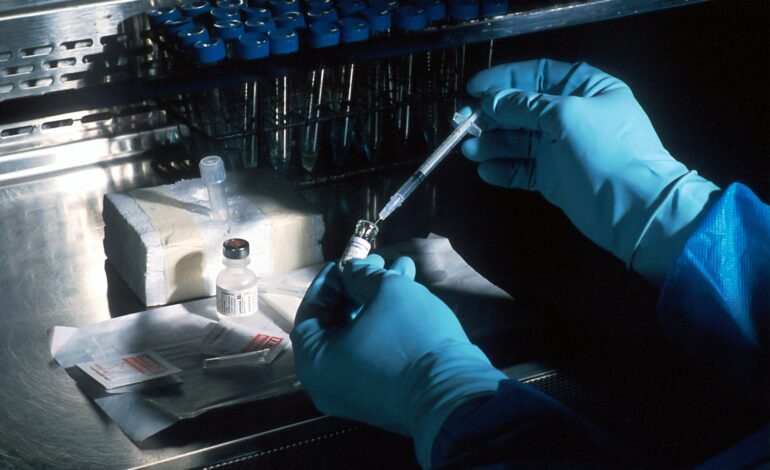Massachusetts biotech company faces leadership crisis
Massachusetts' biotech sector loses jobs and funding; leaders warn of global competition and challenges to maintaining their leadership.

Photo of National Cancer Institute in Unsplash
For nearly half a century, Massachusetts has been synonymous with biomedical innovation. From Cambridge to Boston, its laboratories have led to pioneering treatments for diseases such as cancer, multiple sclerosis, and cystic fibrosis. However, a new report from MassBio paints a worrying picture: the state is experiencing the first job contraction in the modern history of its biotech sector.
Decline in jobs and funding in Massachusetts
The Industry Snapshot 2025 report shows that more than 1,100 research and development jobs were lost in 2024 (–1.7% TP3Q), along with a reduction in biomanufacturing (–1.5% TP3Q). This contraction represents a break from a trend of uninterrupted growth over the past few decades.
The blow isn't limited to employment. Venture capital (VC) investment in biotechnology fell by 17% in the first half of 2025, totaling just $2.75 billion, the lowest figure since 2017. This is compounded by a 1.4% drop in federal NIH funding in 2024, even before the Trump administration's budget cuts.
Voices of alert
Industry leaders warn that the current situation is not a simple blip:
- Michael Gilman (Arrakis Therapeutics) sees high interest rates and uncertainty in drug pricing policies as “existential threats” to American science.
- Steven Dickman (CBT Advisors) emphasizes that China is the biggest beneficiary of this decline. The Hong Kong stock market has seen more than 30 biotech IPOs so far in 2025, far exceeding activity in the US.
- Juan Enriquez (Excel Venture Management) points to another phenomenon: the emergence of artificial intelligence, which has absorbed much of the venture capital that previously flowed into biotechnology.
- Ananya Zutshi (Guardian Bio) recounted how her startup went into hibernation due to a lack of resources, while other founders choose to relocate their companies to states with more aggressive incentives.
- John Maraganore, founder of Alnylam, warns that the relocation of talent and the creation of "virtual" companies are diluting Massachusetts's advantage. For him, the situation demands an extraordinary response: "This is our Sputnik moment."
Massachusetts: Between Crisis and Resilience
Despite the bad news, Massachusetts maintains structural strengths: it accounts for 23% of the nation's R&D talent, boasts more than 63 million square feet of specialized space (albeit with high vacancy), and accounts for nearly 16% of the global drug development pipeline.
MassBio CEO Kendalle Burlin O'Connell insists the region has "the foundations for a historic recovery." The question is how long the downturn will last and whether the ecosystem can hold out until investor confidence returns.
A parallel with semiconductors
Analysts agree that the biotech crisis reflects a similar pattern to that experienced by the microchip industry: a gradual loss of leadership relative to Asia.
For more stories like this, follow More Latin.
Sources:
